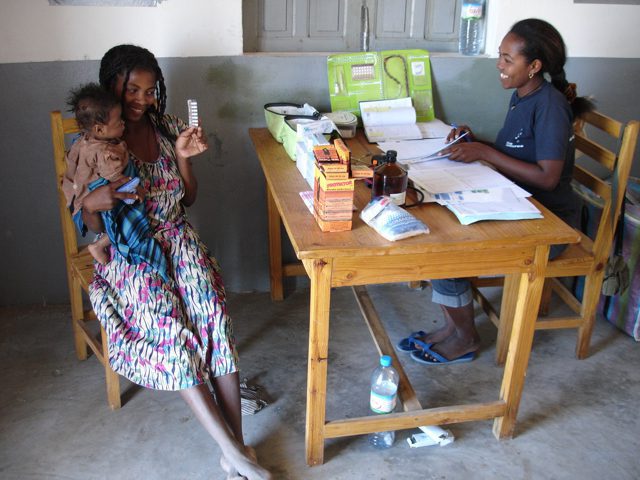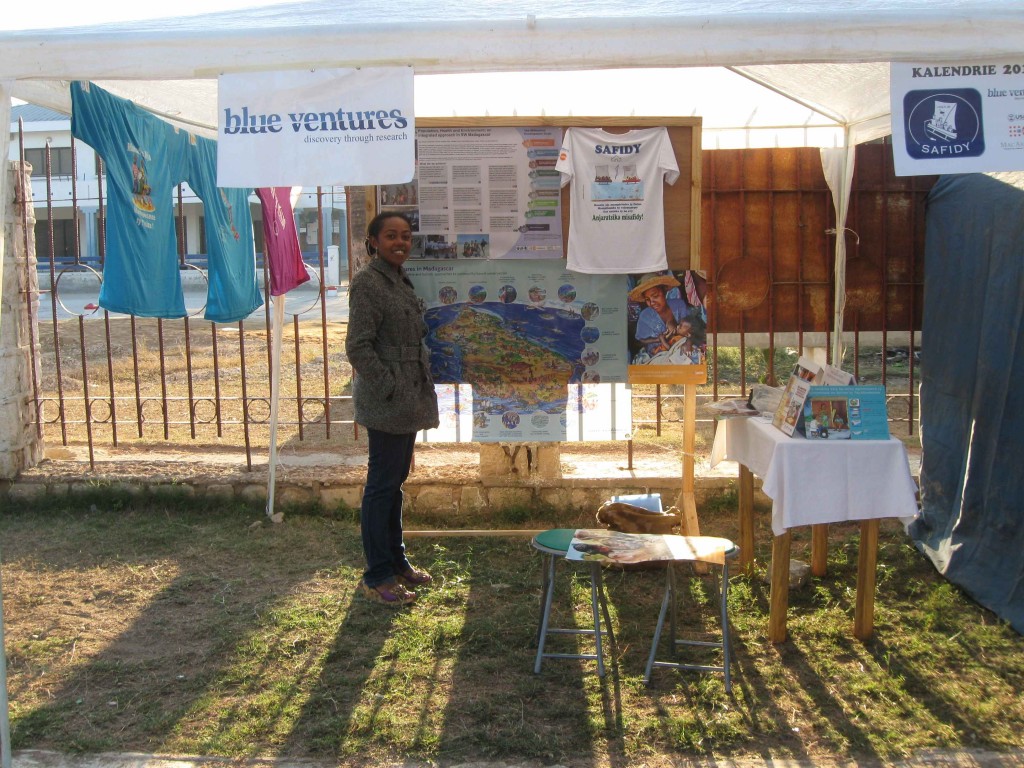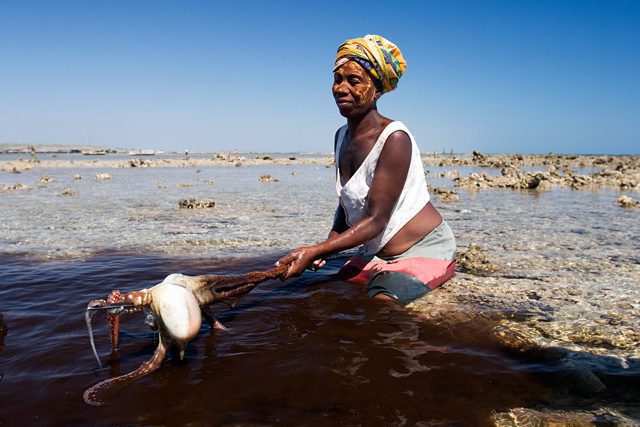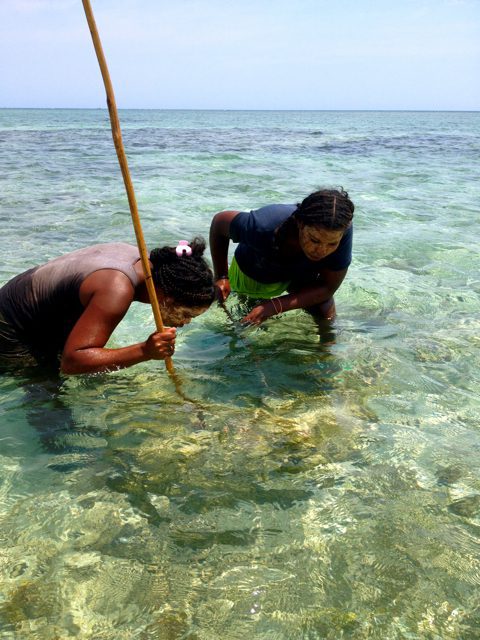In the seventeenth instalment in our series of Q&As with Blue Ventures staff, we ask Fanjavola Rakotozafy, community liaison officer for our sustainable fisheries programme, some searching questions about science, conservation and superpowers…
What is your professional background?
I studied Geography at the University of Toliara from 2006 until 2009, and have been doing an online communications degree at a private college in Toliara since 2011.
Before joining Blue Ventures, I worked for Marie Stopes Madagascar, helping the doctor and nurses to offer reproductive health services, doing the administration (activity planning, finances and monthly reports) and coordinating the team for their outreach programme in southwest Madagascar.
I joined Blue Ventures in 2009 to help with the Safidy programme, working as the clinical technician for four years, before moving across to the sustainable fisheries programme in April 2013.

Why do you do what you do?
I became a community liaison officer because I like working with women. My job before was to be responsible for our family planning and community health activities, so I helped vulnerable women to improve their life by planning their births. These women get the benefits of family planning, because spacing their births is good for the mother’s and baby’s health, and they can have more time to work and earn money.
With my new position I still work closely with the women who live with the sea, this time on sustainable fisheries management and octopus reserves.
What is the best/worst thing about your job?
I love to represent Blue Ventures everywhere, even at conferences in Antananarivo or abroad, and share what we are doing with our programmes. For example, this month I was in Antananarivo to present our integrated Population-Health-Environment approach at an international symposium on “Biodiversity and People in the Context of Climate Change” hosted by the University of Antananarivo. It was a great success because I was able to share our results and experiences with all of the participants, communicate about our approach with new people (lots of scientists and NGOs), and I learned many things about biodiversity and climate change.

In my role with Safidy it was great to select the 33 community-based distributors (local women trained to offer counselling and contraceptives in their villages), and collaborate with partners including Marie Stopes Madagascar and Population Services International.

The most difficult thing about my job is getting to the remote villages that we work with, like one time we travelled to Lamboara when there was really bad weather, very windy and strong currents, so it was quite a challenge, taking a zebu cart and then wading through deep water!
What do you enjoy most about your job?
I most enjoy the opening of the octopus reserves, when the communities and the women see the benefits of their sustainable management efforts.

I also like improving my knowledge and skills regarding conservation, and I think that’s why Blue Ventures’ integrated approach is so good, because we work across health, livelihoods and the environment in a holistic way.
What is your favourite species and why?
My favourite species is the mangrove, because their green colour makes the landscape so beautiful, and they have a big responsibility in regulating our climate.
What would your scientific superpower be?
I would like to able to explain to people about coral reefs and their importance to the marine ecosystem.
What is one of the strangest things that has happened to you while working on conservation?
The strangest thing that happened to me was when I couldn’t recognise an octopus hiding in its hole. It was during the Manjaboake opening reserve in September this year, when a Vezo lady said, “look, can you see the octopus in that hole?” I didn’t see anything, but then she started to get the octopus with her spear, and it was a big octopus in there! I said “maybe I’m not Vezo, that’s why I couldn’t see it.”


